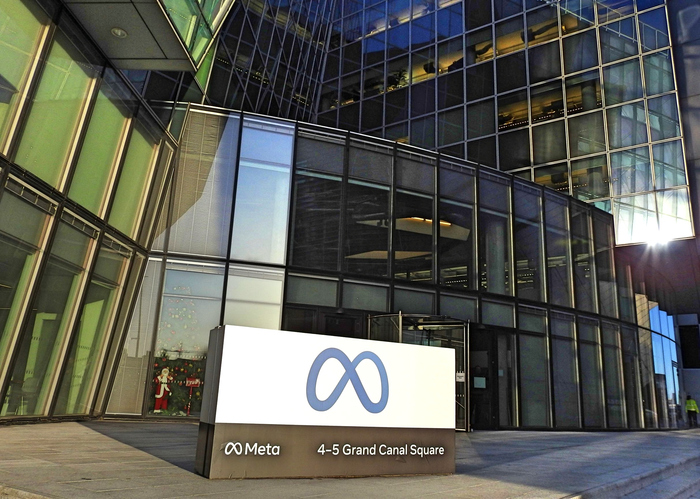We’re recognized securities fraud whistleblower attorneys whose matters have led to over $1.5 billion in recoveries and over $125 million in awards
Our unwavering commitment to our clients has helped them obtain over $125 million in preliminary or final rewards. Since our firm’s inception in 1988, the courageous actions of our U.S. Securities and Exchange Commission (SEC) whistleblower clients have been instrumental in the government obtaining over $1.5 billion in recoveries under securities and related criminal laws. Notably, one of our clients was the recipient of a landmark award, ranking among the top ten largest ever granted by the SEC.
The Best Securities Fraud Lawyers in The World
Our Securities Whistleblower Group offers unparalleled expertise. The group is led by Allison Herren Lee, former Acting Chair and Commissioner of the SEC, and Andrew Feller, who spent 15 years at the SEC investigating and litigating securities fraud matters as Senior Counsel in the Division of Enforcement.
Our Securities Whistleblower Group is also backed by leading securities fraud experts, including founding partners Michael D. Kohn, Stephen M. Kohn, and David K. Colapinto, who since the passage of the Dodd-Frank Act have fought and won numerous cases involving Ponzi schemes, market manipulation, accounting fraud, stock fraud, and cryptocurrency fraud, among others.
Our roster of distinguished SEC alumni and top whistleblower attorneys provides unmatched insight and positions us as the most experienced choice for your securities whistleblower case, no matter how complex the scheme or violation is.
The Securities Fraud Whistleblower Law Firm Behind Top Award Cases
With the ability for whistleblowers to file anonymously and the high level of confidentiality in most SEC securities fraud cases, we are unable to provide detailed information about our clients’ cases. However, we can provide a short overview of the awards we helped our clients obtain.
For example, we helped our client receive one of the ten largest whistleblower awards ever granted by the SEC. Those top ten awards were all for at least $30 million, including five all for at least $50 million, and two that even topped $100 million.
SEC Rulemaking: We Wrote the Rules
Our SEC whistleblower attorneys have been leading advocates for securities fraud whistleblowers since the program was created in 2010 under the Dodd-Frank Act. Our firm actively engaged with the SEC to shape the initial rules, successfully pushing for key protections like banning restrictive NDAs and extending reward eligibility.
In 2018-20, KKC spearheaded the opposition to proposed caps on large whistleblower rewards, ultimately leading to the SEC’s retraction of the proposal.
More recently, in 2022, KKC supported proposed amendments to the whistleblower program aimed at ensuring whistleblowers obtain fair rewards, particularly in matters involving related actions by other government agencies.
Throughout these rulemaking periods, KKC consistently engaged constructively with the SEC, submitting extensive comments and working with the agency and key lawmakers to strengthen whistleblower protections.
If you have information about securities fraud or a violation of federal securities laws, get in touch with our SEC fraud attorneys today for a free and confidential consultation. We don’t get paid unless we win your case.
SEC Whistleblower Program Expertise
The Office of the Whistleblower (OWB) is a dedicated office within the SEC’s Division of Enforcement that oversees the SEC Whistleblower Program.
The SEC relies on tips from insiders and others with knowledge of misconduct to help expose securities frauds and violations and enforce the law, to carry out the agency’s investor protection mission.
To achieve this mission, the SEC Whistleblower Program incentivize individuals to provide credible information about potential violations of federal securities laws and offers potential monetary awards and protection from retaliation by their employers for reporting such information.
OWB plays a key role by administering an efficient, high-quality whistleblower program that is responsive to whistleblower needs to help the SEC identify and stop securities law violations. OWB helps ensure the confidentiality of whistleblowers to the extent possible under the law and efficiently assesses and processes whistleblower award claims.
We’ve Represented Whistleblowers in a Wide Range of Securities Frauds
“Securities fraud” refers to a wide number of potential frauds involving stocks, bonds, and other securities, and is often called investment fraud, stock fraud, financial fraud, investor fraud, among other names.
The most common types of securities fraud being reported by whistleblowers include market manipulation, offering fraud, fraud involving initial coin offerings and crypto asset securities, and misleading or inaccurate corporate disclosures and financial statements.
However, there are many other types of fraud, including the following:
- Pump and Dump (artificial price inflation with intent to profit from deception)
- Misinformation (spreading false rumors with intent to manipulate)
- Wash Sales (artificial trading activity with intent to manipulate price)
- Misrepresentation & Mismarking (false information to investors)
- Ponzi Schemes (deceptive investment scheme)
- Pyramid Schemes (deceptive recruitment-based scheme)
- High-yield Investment Fraud (promises with no basis, intent to defraud)
- Breach of Fiduciary Duty (abuse of a position of trust and confidence)
- Conflicts of Interest (when concealed or left unmitigated)
- Bribery (public companies offering things of value to foreign officials with corrupt intent)
- Inaccurate Books and Records (when intentionally falsified to conceal fraud)
- Insider Trading and Tipping (using material non-public information)
- Affinity Frauds (fraudulent schemes targeting specific cultural or social groups)
And other regulatory violations:
- Failure to File Timely Reports
- Illegal Trading (violating market rules)
- Churning (excessive trading for commission)
- Unauthorized Trading by Brokers
- Cherry Picking (favoring one client’s interest over others’)
- Failure to Supervise and Other Broker-Dealer Misconduct
- Selling Away (selling unapproved securities)
- Excessive Fees (can be a violation if unreasonable or undisclosed)
- Misrepresentations in Official Filings
- Pay-to-Play (quid pro quo for business from the government)
- Improper Gifts (to municipal employees – violation of ethical rules)
- Lack of Internal Controls (failure to implement required systems)
- Failure to Register Offerings
- Acting as Unregistered Brokers, Dealers, or Investment Advisers
- Retaliation (against whistleblower)
- “Naked” Short Selling
- Cybersecurity Failures at Public Companies and Registered Entities
- Regulation SHO Violations, Incuding Failures to Deliver
- Regulation M Violations
- Regulation D Violations
- False Certifications by Senior Executives
The SEC enforces many rules and there are many other potential violations. The wide array of potential misconduct illustrates why robust whistleblower programs and knowledgeable legal counsel are essential.
We Help Whistleblowers Obtain SEC Whistleblower Awards
Eligible whistleblowers can receive an award of 10 to 30 percent of the monetary sanctions collected in a successful SEC enforcement action and related actions where the sanctions exceed $1 million.
To be eligible, a whistleblower must voluntarily provide the SEC with original information. The information must be original, meaning it is independently known and not publicly available, and it must lead to successful enforcement action by the SEC.
Payments to whistleblowers are made from an Investor Protection Fund, which is financed entirely through monetary sanctions paid to the SEC by securities law violators. That means that whistleblower awards do not reduce repayments for harmed investors. Since the program’s inception, the SEC has awarded over $2.2 billion to hundreds of individual whistleblowers (around 444 individuals as of the end of FY 2024).
Whistleblowers may also be eligible for awards based on monetary sanctions collected in related proceedings by other law enforcement and regulatory authorities (e.g., Department of Justice criminal actions) derived from the information the whistleblower provided to the SEC.
We Help Whistleblowers Obtain Protection From Retaliation
The Dodd-Frank Act also prohibits retaliation by employers against employees who report possible securities violations to the SEC. The rules concerning this prohibition can be found in Rule 21F-17(a) of the Securities Exchange Act.
The types of retaliation include wrongful termination, demotion, reduced pay or responsibilities, harassment or hostile work environment, blacklisting, legal threats and frivolous lawsuits, and other adverse actions like denying promotion, unfavorable schedule changes, and exclusion.
Retaliation can also be done in many ways, such as impeding communication with the SEC by attempting to enforce restrictive NDAs, or requiring internal reporting first, threats, removing access, requiring notification, or requiring employees to waive their rights to whistleblower awards.
The SEC has the authority to bring enforcement actions against companies and individuals that retaliate against whistleblowers. Whistleblowers who have experienced retaliation may sue their employers in federal court for remedies such as reinstatement, double back pay with interest, and compensation for litigation costs and attorneys’ fees.
Leading Attorneys Assisting Whistleblowers in the SEC Whistleblowing Process

To be eligible for an SEC whistleblower award, you must first submit a tip. This can be done online through the SEC’s TCR portal or by mail using the contact information on their “Submit a Tip” page.
While you can submit a tip without a lawyer, you should consider working with an experienced whistleblower attorney, because an attorney can help you submit anonymously, provide legal guidance, negotiate any potential award, and protect your rights throughout the process.
The SEC whistleblowing process is as follows:
- Report a Tip: Submit information about potential securities law violations to the SEC either online through its TCR Portal or by mailing/faxing a Form TCR.
- SEC Reviews: The SEC’s Office of Market Intelligence analyzes tips. Stronger tips may lead to an investigation by SEC enforcement staff. The SEC might interview you and request more information, while keeping the investigation confidential.
- SEC Acts (Potentially): If your tip leads to a successful SEC enforcement action with over $1 million in ordered sanctions, you may be eligible for an award.
- Notice Posted: The SEC publishes a notice when a successful case reaches a final order with significant sanctions.
- Apply for Award: Within 90 days of the notice, submit a Form WB-APP explaining why you deserve an award.
- Initial Decision: The SEC staff will review your application and make an initial recommendation on whether and how much you should receive (typically within 2 years).
- Review/Appeal Initial Decision: You can review the information used to make the initial decision and potentially request a meeting or appeal if you disagree.
- Final Decision: The SEC issues a final order on your award.
- Award Paid: If approved, your award (10-30% of collected sanctions) is paid from a fund for investors, not from harmed investors.
- Appeal Final Denial (Limited): If your award is denied, you may be able to appeal to a U.S. Court of Appeals. You generally cannot appeal the percentage of an award within the 10-30% range.
There are so many rules and requirements that any misstep increases the chances of an award denial, or worse, your case being dropped or never pursued in the first place. Thus, if you’re thinking of reporting to the SEC, we recommend you consult an experienced whistleblower attorney.
Note on Reporting Internally
It’s important to note that reporting internally is NOT a requirement to be eligible for an SEC whistleblower award. You can report directly to the SEC and still qualify. However, reporting internally can be a positive factor in the SEC’s award determination.
Just keep in mind, if you report internally, to get credit for this when the SEC considers your award, you should generally report the same information to the SEC within 120 days of your internal report. Failure to follow this rule may decrease your potential award amount.
Contact Our Securities Fraud Whistleblower Lawyers Today
Our firm strongly recommends engaging our whistleblower attorneys to significantly improve your likelihood of both SEC case acceptance and a maximized award. Here’s how our thorough approach can benefit you:
- Free case review: Upon completing an intake on our site, our attorneys will gladly offer free consultation to assess your case and determine if we can provide representation.
- Prepare documentation: Our attorneys provide comprehensive assistance in preparing your documentation and offer expert guidance on evidence acquisition.
- Prepare TCR: By retaining our firm, you gain access to our extensive experience in the often-intricate process of preparing and submitting the TCR form.
- Submit TCR: We work diligently to ensure your TCR is robust and credible, reviewing it thoroughly with you to ensure your full understanding and involvement in the submission process.
- Protect your identity: We ensure the option of anonymous submission to the SEC, should you desire it, while upholding the strictest confidentiality standards.
- Representation: Following the submission of your TCR, we will manage all communications with the SEC, promptly addressing any inquiries or requests for assistance.
The impact of your well-prepared information in prompting the SEC to initiate or advance an investigation can positively influence your eligibility for and the potential value of an award.
If your information leads to the SEC opening a new investigation, re-opening a closed investigation, or pursuing a new line of inquiry in an ongoing investigation, you may be eligible for an award if you meet certain criteria.
Your assistance may also increase the size of any eventual award. For a full list of positive and negative award factors, read our FAQ: What are the SEC Factors for a Whistleblower Award?
FAQs
Frequently Asked Questions
Whistleblower Guides
Our Firms SEC Whistleblower Cases

We have successfully represented a number of SEC whistleblowers, preserving their anonymity and securing sizable whistleblower rewards. In one case, we helped our client receive one of the ten largest whistleblower awards ever granted by the SEC.

Our firm represented an anonymous whistleblower, who on May 17, 2021, received a whistleblower award of almost $13.5 million. The SEC has issued more than $31 million in whistleblower awards related to this case.
Latest from Our Blog
Other Statements from the SEC
“I want to note our appreciation to whistleblowers who, sometimes at great risk to their livelihood, report suspected securities laws violations to the SEC. Our whistleblower program has been a success because of their efforts. Working together, we have stopped frauds and prevented losses for countless investors”
“The SEC Whistleblower Program…has rapidly become a tremendously effective force-multiplier, generating high quality tips, and in some cases virtual blueprints laying out an entire enterprise, directing us to the heart of the alleged fraud.”
Related Media
Bear Stearns Whistleblower Eugene Ross: National Whistleblower Day 2019
Enron Whistleblower Sherron Watkins: National Whistleblower Day 2019
SEC Chair Gary Gensler on SEC Surpassing $1 Billion in Awards to Whistleblowers
Former SEC officials lead the firm’s new group, representing whistleblowers who report financial fraud and legal violations to the SEC, CFTC, DOJ, FinCEN, and the IRS.



![Reporting Recordkeeping Failures To The Sec [2025 Guide]](https://kkc.com/wp-content/uploads/2025/01/Recordkeeping-Failures.jpg)





